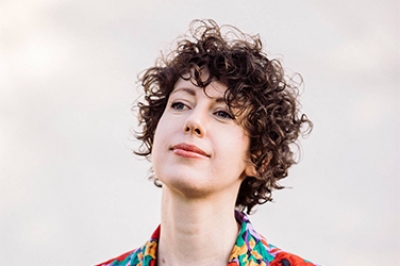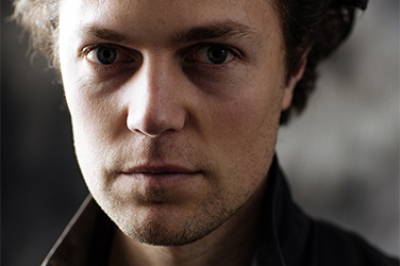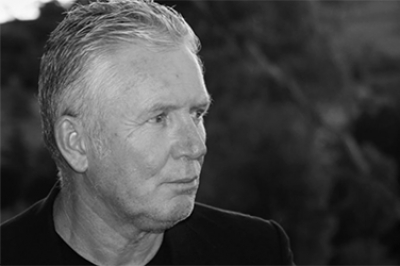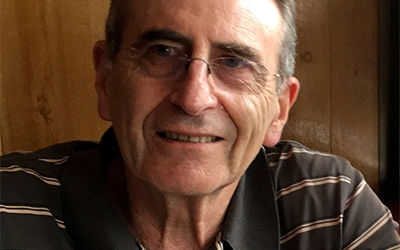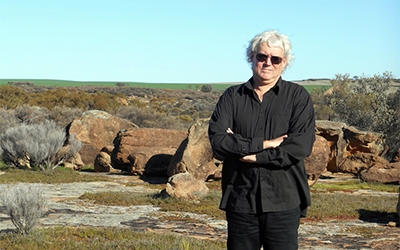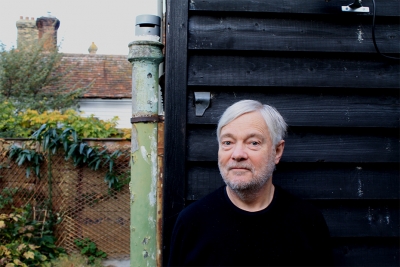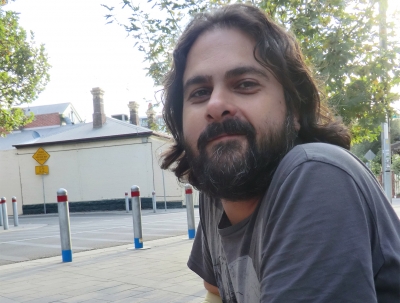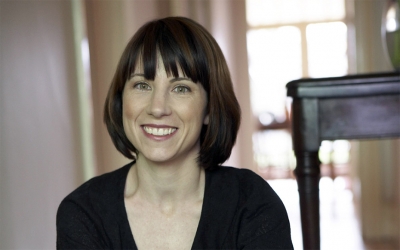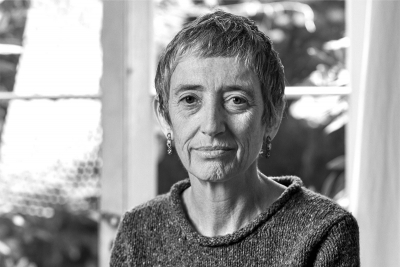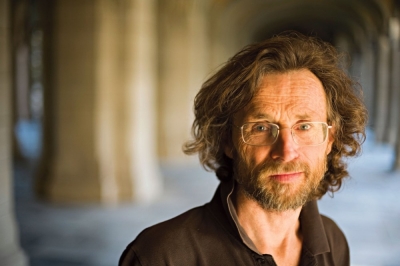Poet of the Month
For me, if a poem doesn’t originate in the body, in the gut, it’s usually a plotting of the forebrain, an attempt to ‘say something’, and should be ignored.
... (read more)Toby Fitch is poetry editor of Overland and a lecturer in creative writing at the University of Sydney. He is the author of seven collections of poetry, most recently Sydney Spleen (Giramondo, 2021).
... (read more)The list is long, and takes the scenic route, from Homer to Hill, on to Plath / and Sexton, Murray, Adamson, and many I’ve forgotten. An overgrown path / with signposts lit or down, pressing on by star or map light, word of mouth / or accidental find. Influence is confluence, where shock of emotion / meets quiet thought. I follow leads, read every day, avoiding emoticons.
... (read more)Alex Skovron is the author of seven poetry collections, a prose novella, The Poet (2005), and a book of short stories, The Man who Took to His Bed (2017). His volume of new and selected poems, Towards the Equator (2014), was shortlisted in the Prime Minister’s Literary Awards. His work has been translated into a number of languages, and he has co-authored book-length translations of two Czech poets: Jiří Orten and Vladimír Holan. His new collection, Letters from the Periphery, is now available. He was born in Poland, lived briefly in Israel, and arrived in Australia aged nine. He lives in Melbourne.
... (read more)John Kinsella is the author of over forty books. His most recent publications include the novel Lucida Intervalla (UWA Publishing 2018), Open Door (UWA Publishing, 2018), and Supervivid Depastoralism (Vagabond, 2021). His poetry collections have won a variety of awards, including the Prime Minister’s Literary Award for Poetry and the Christopher Brennan Award for Poetry. His volumes of stories include Crow’s Breath (Transit Lounge, 2015), Anarchy in the Avon Valley (Liverpool University Press, 2010) and Polysituatedness (Manchester University Press, 2017). He is a Fellow of Churchill College, Cambridge University, and Professor of Literature and Environment at Curtin University. With Tracy Ryan he is the co-editor of The Fremantle Press Anthology of Western Australian Poetry (2017). He lives with his family in the Western Australian wheatbelt.
... (read more)I’ve been fortunate enough to talk to a number of older poets, many of whom are no longer with us. I count myself fortunate to have met poets such as Carl Rakosi, Gael Turnbull, Ed Dorn, Jonathan Williams, Lee Harwood, and Tom Raworth. If I could use a time machine, I’d like to talk to William Carlos Williams, especially about the radical work he produced in the 1920s.
... (read more)In the first review of my poetry, I discovered that my writing was ‘headache-inducing’ and ‘best avoided’. I was pleased that my book had at least caused a headache for that sinister reviewer! Over the years, though, even hysterically negative reviews – and, boy, do I attract them! – don’t excite or bother me too much. The best thing I’ve got from a review is knowing that there are readers who pay attention to a book’s composition, to the labour that I’ve put into producing the thing.
... (read more)It is strangely moving to learn how a reader thinks about something I’ve written. Mostly, I’ve been lucky to have reviewers who crystallise, for me, some pattern in my thinking or inchoate hope for the work. It helps me to start something new. I learn as much, perhaps, from reviews of other people’s work – other approaches, a sense of connection.
... (read more)A bit of space and peace are good for writing poetry. I like to feel warm, so a small electric heater should be blowing on my ankles.
... (read more)Hours on each line, weeks on a stanza, months on the whole poem, but with long breaks between. Most poets spend most of their time not writing poetry, and it has to be this way.
... (read more)
